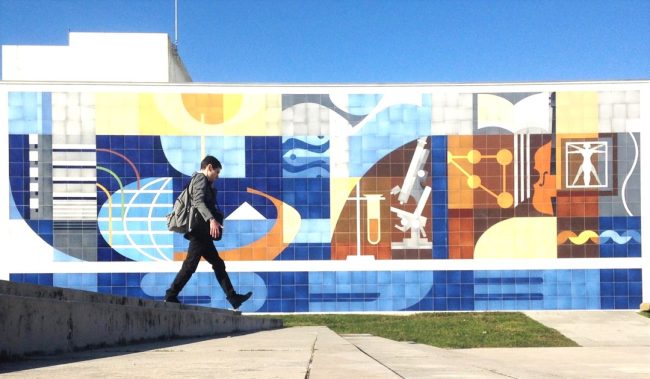Can digitization revolutionize students’ mobility?


The Erasmus+ ESC-Tenon2 project stands out for innovation and impact and promises to transform the way students move and interact in the European academic space, with new opportunities and challenges.
By Margarida Pinheiro *
You are reading an article without paid access. Make a donation to help keep the newspaper for free online.
Launched in November 2023 and scheduled for the end of April 2026, Esc-Tenon2 is a Erasmus+ cooperation project aimed at promoting the adoption of the European Student Card (ESC) within the principles of education 5.0 and Society 5.0. These projects aim to increase the quality and relevance of the activities of organizations, the development and strengthening of partnership networks, the increase in the ability to operate together on a transnational level, while promoting the internationalization of activities, the exchange and development of new practices and new methods of action, as well as sharing and conflict of ideas.
With the participation of six European partners, including the University of Aveiro, the project focuses on the digitization of students’ mobility, offering technological solutions that make life easier for students and higher education institutes. Digitization offers numerous benefits to students and institutions.
ESC-Tenon2 integrates functionality such as digital authentication, which simplifies registration processes and access to academic services, among other structures. Tools such as Student Journey and Student Toolbox offer a more efficient and inclusive experience, allowing Aveiro students to access essential resources quickly and safely. For example, digital authentication reduces the processing time of international exchanges, eliminating the need for redundant documentation.
Despite the benefits, the implementation of ESC addresses significant challenges, such as institutional resistance and technical interoperability problems. Esc-Tenon2 faces these obstacles through formation and pilot tests, promoting digital literacy and the adoption of ESC. The approach censored for students and collaboration with academic networks, such as ESN and ISIC, are fundamental for the success of the project.
The future of digital students’ mobility is promising and projects such as ESC-Tision2 are essential to create this vision. The local community, in particular the University of Aveiro, has an important role to play, supporting and participating in initiatives that promote innovation and inclusion in education. Digitization not only facilitates the life of the students, but also contributes to a more efficient and collaborative education system, in line with the objectives of the 5.0 education and of the Society 5.0.
To find out more about the ESC-Tenon2 project, visit the official website in https://www.esc-tension.eu/ And find out how digitization is modeling the future of education.
* Researcher of the University of Aveiro. Originally published article EM https://www.ua.pt/pt/noticias/13/90420.
Follow the newsdeaveiro.pt channel on WhatsApp.
Advertising and services
»You can quickly activate promotional campaigns in the online newspaper NotíciaiasseAveiro.pt, as well as requesting other services. Consult information to include online advertising.




